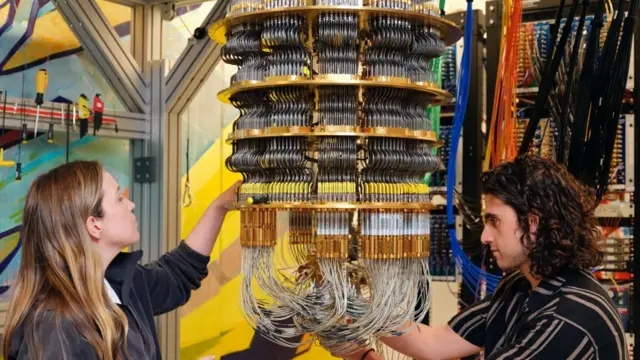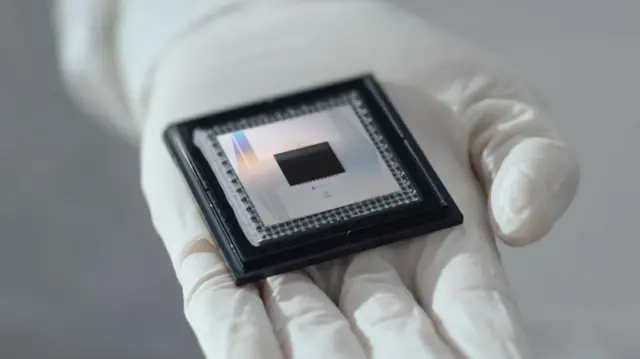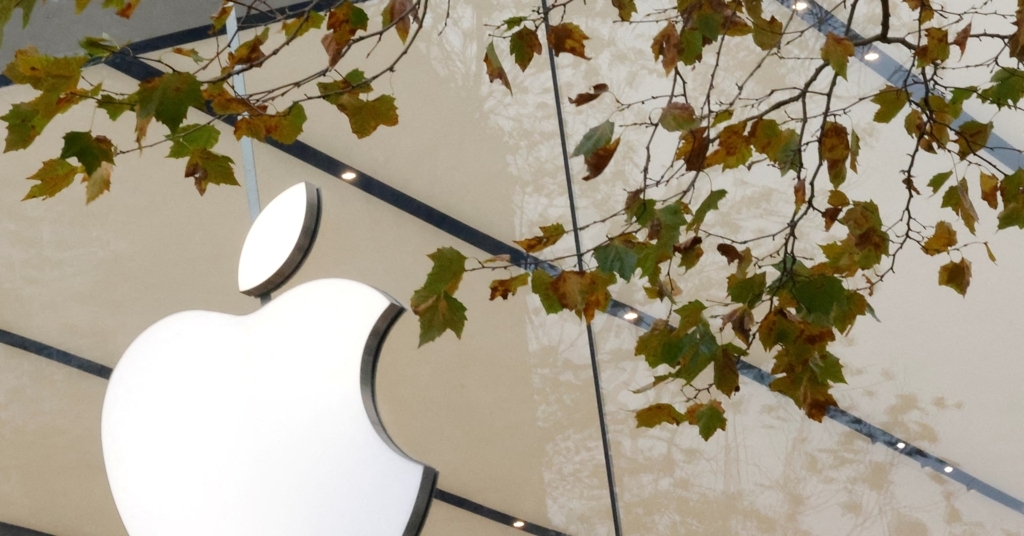Google's Willow Quantum Chip Revolutionizes Computing Speed
Explore how Google's Willow quantum chip changes computing, solving complex problems in minutes, offering groundbreaking potential for various industries.

Key Points
- Google
's Willow quantum chip can solve complex problems in under five minutes, outperforming supercomputers by millions of years.
- The chip demonstrates a breakthrough in error correction, allowing error rates to decrease exponentially as qubit counts increase.
- Future applications of Willow aim to tackle real-world challenges, such as drug discovery and sustainable energy solutions.
In a significant stride toward reshaping the landscape of computing, Google has recently unveiled its new quantum chip, Willow, which has garnered considerable attention for its astonishing capabilities. This advanced chip not only showcases the immense potential of quantum computing but also lays the groundwork for practical applications that could transform numerous industries. The ability of Willow to solve computational problems that would take supercomputers tens of septillion years is a game-changer in the realm of technology.

The Power of Quantum Computing
What sets quantum computing apart from conventional computing is its use of quantum bits, or qubits, which can exist in multiple states simultaneously. This capability allows quantum computers to perform calculations at unprecedented speeds. Google's Willow chip contains 105 qubits, and researchers have achieved a breakthrough that enables the chip to manage quantum noise, which is one of the biggest obstacles in quantum computing.
Historically, quantum systems have struggled with error rates that increased as the number of qubits grew. This is where Google's progress shines—Willow can reduce error rates exponentially as it scales up, a feat that has eluded scientists for nearly three decades. This achievement positions Google as a pivotal player in the quantum computing race, as outlined by the company's quantum AI founder Hartmut Neven.
Remarkable Demonstrations
During recent testing, Willow demonstrated its prowess by completing a computational task in less than five minutes. This task, which supercomputers like Frontier would require 10 septillion years to complete, highlights the vast gap in computational efficiency between quantum and classical systems. Such results emphasize the potential for quantum computing to solve complex problems previously deemed unsolvable.

The Road Ahead
While Willow's achievements are impressive, the journey toward practical and widely applicable quantum computing is just beginning. Google aims to leverage its advancements in error correction and qubit management to tackle real-world problems like drug discovery, fusion energy, and enhanced AI algorithms. As noted by
, Google’s CEO, these applications could redefine how we approach some of the world's most pressing challenges.
Looking to the future, researchers emphasize that transitioning from theoretical demonstrations to practical computations is crucial. Google is targeting its first "useful, beyond-classical" computation, which would address relevant issues that conventional computers cannot solve.
Industry Implications
The implications of Willow's success go beyond just theoretical advancements; they mark the potential birth of an entirely new industry. With governments and technology giants investing billions into quantum research—around $20 billion over the last five years—the competitive landscape is heating up. Firms such as IBM and
are also racing to develop their quantum solutions, underscoring the importance of collaborative progress.
Nonetheless, Google's claim to have achieved a chip that is "below the threshold" for effective error correction puts it in a strong position. As researchers work to enhance the chip’s capabilities and reduce error rates further, the prospect of functional quantum computers in various applications becomes increasingly feasible.
The excitement surrounding the Willow chip isn't merely confined to academic circles; it resonates across industries and captures the imagination of innovators everywhere. As quantum computing continues to evolve, the benefits it promises cannot be overstated—from revolutionizing healthcare to advancing sustainable energy solutions.
In summary, Google's Willow quantum chip represents a monumental leap in quantum computing, combining innovative technology with a vision for practical applications. As we stand on the brink of this new technological frontier, the potential for positive change in various sectors seems boundless. The continued advancement in quantum computing technology carries the promise of resolving complex challenges that could significantly impact our world.


